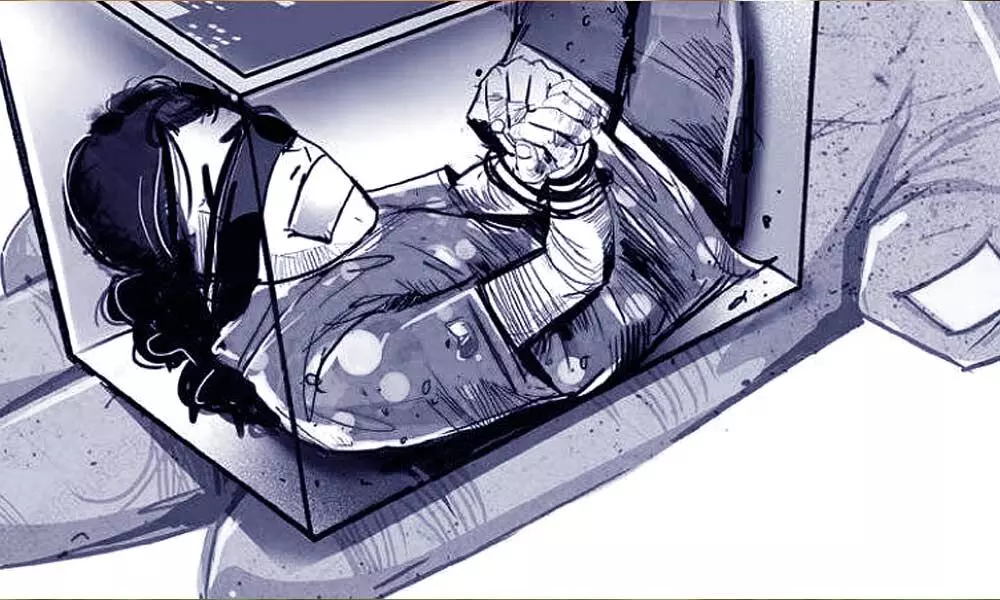Activists Claimed That Human Trafficking Cases in Tamil Nadu are Under-Reported

For representational purpose (Photo/newindianexpress)
- The number of cases filed in Tamil Nadu has decreased dramatically since 2016.
- As per Balamurugan, the Supreme Court, while considering a case in 2013, urged police to treat situations of missing children as abduction or trafficking until proven differently.
The National Crime Records Bureau (NCRB) estimated that the reality of the cases related to women and child trafficking are vastly different. The number of cases filed in Tamil Nadu has decreased dramatically since 2016, although campaigners reject reports that trafficking has decreased in the state, claiming that the anti-human trafficking unit, which was established in 2009, has remained inert.
According to the National Center for Missing and Exploited Women, 9,564, 10,403, and 11,280 women were reported missing in 2017, 2018, and 2019, respectively. During the same time span, 4,196, 4,271, and 4,519 children went missing. In 2015, there were 577 cases reported, while in 2016, there were 434. In 2017, the number was 13; in 2018, it was 8; and in 2019, it was 16.
P Bala Murugan of Tamil Nadu Alliance, an umbrella organization of civil society organizations operating in the textile sector, claimed that the disparity arises because the public and even enforcement officials are unaware of the sections under which complaints are filed in such criminal activity.
As per Balamurugan, the Supreme Court, while considering a case in 2013, urged police to treat situations of missing children as abduction or trafficking until proven differently.
The activist said that the police faced difficulties after the IPC was amended in 2013 and trafficking cases were filed under section 370, including victims not showing up for a trial, changing testimony, and a lack of coordination with other State police, which resulted in a drop in trafficking cases. He also stated that section 370 of the IPC, under which trafficking crimes are lodged, is not well known among the general public or police officers. Every year, thousands of children are rescued in train stations, yet only a few incidents of human trafficking are reported. In many situations, a full investigation to identify the offenders is not carried out.
However, the number of cases recorded would remain low, according to A Devaneyan, a child rights campaigner from Thozhamai Trust, until people are made aware of Section 370 of the IPC or exclusive legislation on trafficking is enacted. While section 370 of the IPC has a gap in that it does not address the rehabilitation of rescued people. The Victim Compensation Fund is providing monies for rehabilitation. From 2012 to 2019, only about a hundred victims received compensation.
Bala Murugan said that just Rs 128.27 crore out of a total allotment of Rs 544.53 crore has been used across 19 states.
The Trafficking in Persons (Prevention, Care, and Rehabilitation) Bill, 2021, tabled in the winter session of Parliament, gives optimism in this context. The bill proposes a common law to deal with all forms of human trafficking, including sexual exploitation, forced labor, slavery and servitude, and human organ trafficking.
V Ramaraj, a member of the Tamil Nadu Commission for the Protection of Child Rights, has requested the Union government to include members of the NCPCR and SCPCR in the anti-trafficking committees that would be formed under the law at the national and state levels.
Meanwhile, senior police officers, on the other hand, believe that trafficking cases are only filed if preliminary proof exists. They said that the majority of missing children are found, and human trafficking incidents can only be reported if there is a business motive.














